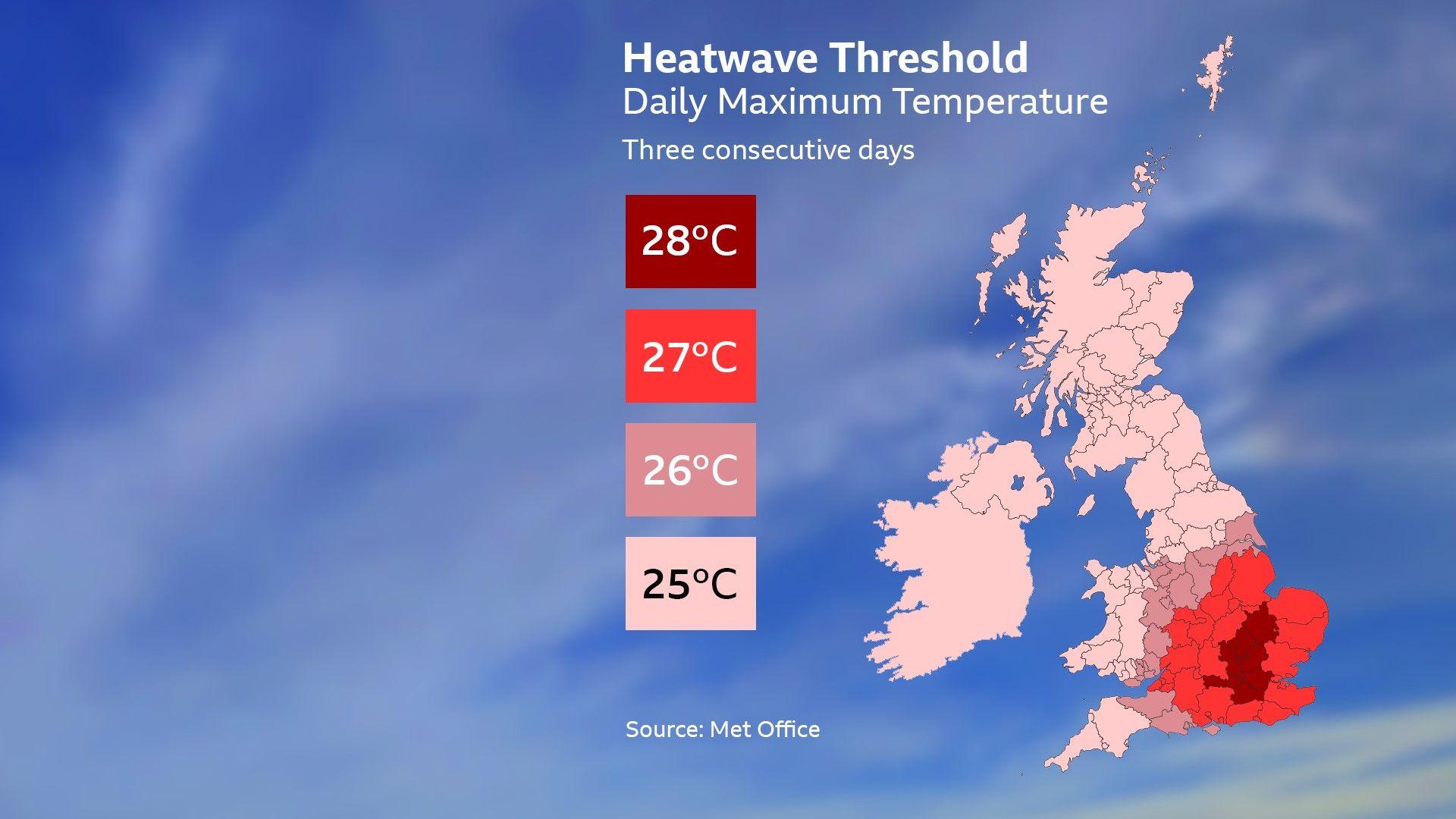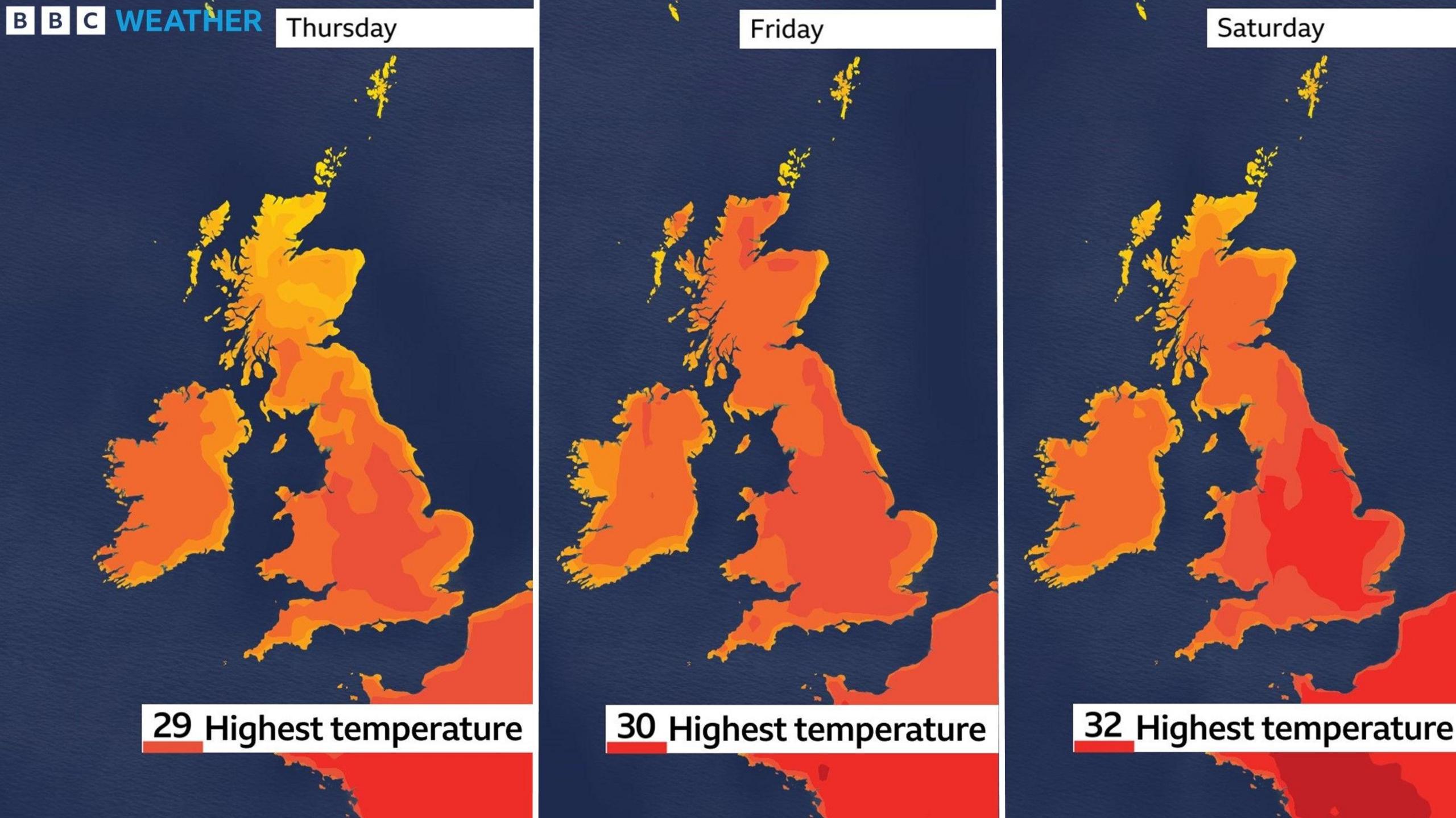 Image source, BBC WeatherWatcher / squiz
Image source, BBC WeatherWatcher / squiz
The hottest spot in the UK so far this year was in Suffolk on 13 June
Chris Fawkes
Lead Weather Presenter
Expertise
Meteorology
Weather forecasting
Temperatures are set to soar to more than 30C (86F) this week as an area of high pressure builds across the UK.
It will become increasingly hot later this week and by the weekend some places could easily beat the highest temperature recorded so far this year - 29.4C (85F) in Suffolk on 13 June.
For a heatwave to be declared by the Met Office we need to reach a threshold temperature for at least three consecutive days, and that varies from 25C across the north and west of the UK, to 28C in parts of eastern England.
Whilst we have seen temperatures exceeding these figures in recent weeks, the warm spells haven't been long enough to qualify as a heatwave but that could be about to change.
 Image source, MetOffice
Image source, MetOffice
A heatwave is defined by the Met Office three consecutive days above these temperatures
Temperatures over 30C for the first time this year
The warm weather will be concentrated across East Anglia and south-east England on Monday and Tuesday before spreading across the Midlands, east Wales and north England by the weekend.
On Monday we're likely to reach 26C, by Wednesday the heat becomes much more widespread with highs of 28C and by the weekend the hot spots surge somewhere between 30-33C.
Meanwhile, it will become warmer in Northern Ireland and Scotland later in the week, but it will be more comfortable here with temperatures mostly in the low 20Cs.
By Sunday things become more uncertain and we may see fresher air move in from the Atlantic with a risk of thundery downpours.
However, some models keep the heat for longer especially in East Anglia and south-east England with temperatures continuing to stay above the 30C mark.

Becoming much hotter later this week
Heatwaves are becoming more common due to climate change, with a greater chance of seeing extreme heat.
They can cause problems for our infrastructure, such as trains running at reduced speeds due to the risk of train tracks expanding and buckling in the heat.
We also see an increase in heat-related health problems which can lead to an increase in excess deaths in those with underlying health conditions.
Heat health alerts are issued to warn health providers of the risk of a heat causing adverse impacts to the heath and wellbeing of the population.








 English (US) ·
English (US) ·